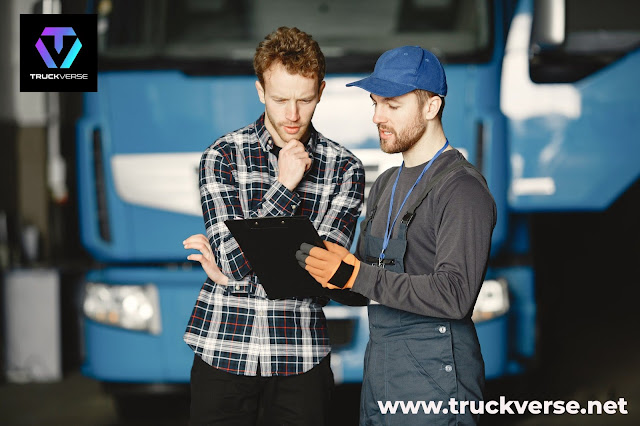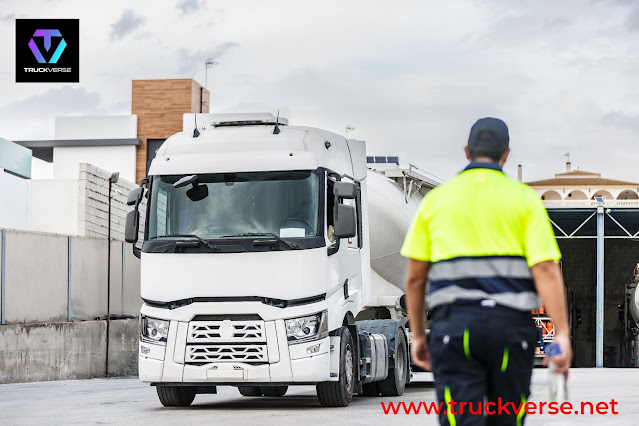The Future of Truck Dispatch: Humans and Machines Working Together

Traditionally, dispatchers have relied on experience,
intuition, and a rolodex of contacts to match trucks with loads, ensuring
efficient delivery of goods across the country. However, the winds of change
are blowing through the trucking landscape. Automation and artificial
intelligence (AI) are rapidly transforming the dispatching services in USA function, raising
questions about the future of human dispatchers.
The Rise of Automation and AI
Technological advancements are undeniably impacting the world
of truck dispatch. AI-powered dispatch systems can analyze vast amounts of
data, including real-time traffic conditions, weather patterns, driver
availability, and load characteristics. This allows them to automate many of
the routine tasks previously handled by human dispatchers, such as:
- Load
matching: AI
algorithms can efficiently match trucks with suitable loads based on
factors like weight, dimensions, and destination.
- Route
optimization:
AI can identify the most efficient routes for each delivery, considering
factors like traffic congestion and road closures.
- Driver
assignment: AI
can analyze driver availability, qualifications, and location to find the
best match for a specific load.
- Document
management: AI
can handle paperwork such as bills of lading and proof of delivery,
reducing administrative burdens for dispatchers.
These automations offer significant benefits for trucking
companies. They can streamline dispatch operations, improve efficiency, and
reduce costs. Additionally, AI can provide real-time insights that human
dispatchers may miss, allowing companies to make data-driven decisions and
optimize their operations further.
The Human Touch Endures
However, it's important to recognize that automation and AI
are not meant to replace human dispatchers entirely. While AI excels at
handling routine tasks and data analysis, it lacks the human touch that remains
vital in the trucking industry. Here's where the irreplaceable value of human
dispatchers comes in:
- Negotiation
and customer service: Building strong relationships with carriers and shippers requires
effective communication and negotiation skills. Human dispatchers can
personalize the experience, address customer concerns, and ensure a smooth
working relationship.
- Problem-solving
and critical thinking: Unexpected delays, equipment breakdowns, or changes in regulations
can arise. Human dispatchers leverage their experience and problem-solving
skills to navigate these challenges and find creative solutions to keep
deliveries on track.
- Building
trust and fostering relationships: The trucking industry relies on trust. Human
dispatchers can build rapport with drivers, understand their needs, and
create a sense of loyalty that AI simply cannot replicate.
The Future: A Collaborative Approach
The future of truck dispatch lies not in replacing humans,
but in empowering them. Automation and AI will act as powerful tools, freeing
up dispatchers to focus on higher-level tasks that require human expertise,
such as:
- Strategic
partnership building: Dispatchers can use their experience to forge strong relationships
with carriers and shippers, creating mutually beneficial partnerships.
- Personalized
customer service: Human dispatchers can provide a tailored experience to clients,
understanding their specific needs and exceeding expectations.
- Proactive
management of exceptions: Dispatchers can anticipate and proactively address
potential issues before they escalate, minimizing disruption and ensuring
smooth deliveries.
- Data
analysis and strategic decision-making: By leveraging AI-generated insights, human
dispatchers can make informed decisions about pricing, routing, and fleet
management.
This human-machine collaboration will be the driving force
behind a trucking industry that is not just efficient but also flexible,
adaptable, and responsive to evolving customer needs.
The Road Ahead
The future of truck dispatch is an exciting one. As
automation and AI become more sophisticated, they will undoubtedly play a
larger role. However, the human element will remain essential. By embracing a
collaborative approach, where AI handles routine tasks and human dispatchers
focus on strategic functions and building relationships, the trucking industry
can ensure a future that is efficient, reliable, and customer-centric. This
will pave the way for a more sustainable and prosperous transportation sector
for years to come.


This comment has been removed by the author.
ReplyDeleteinformative article
ReplyDelete